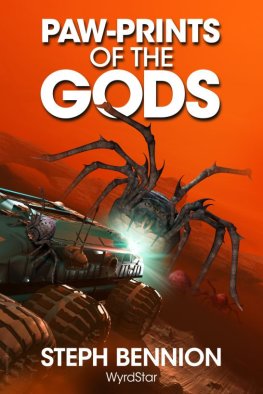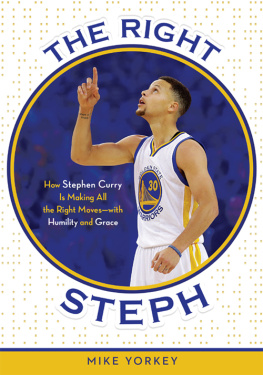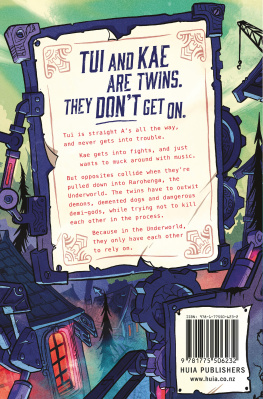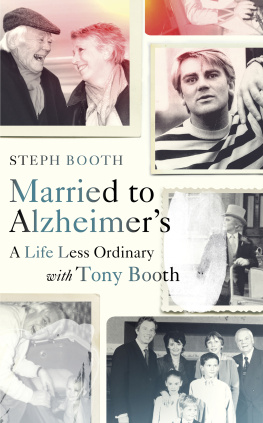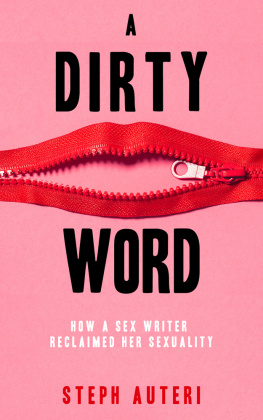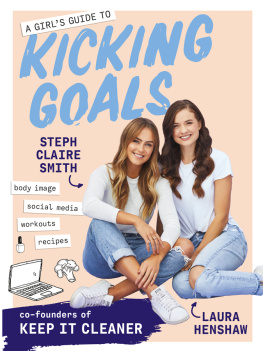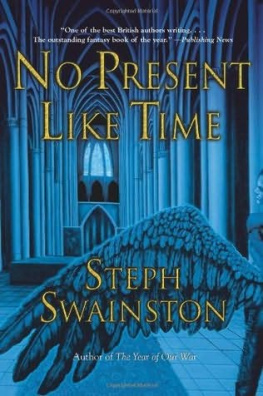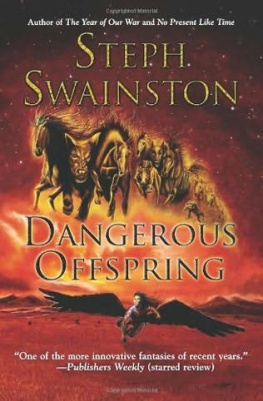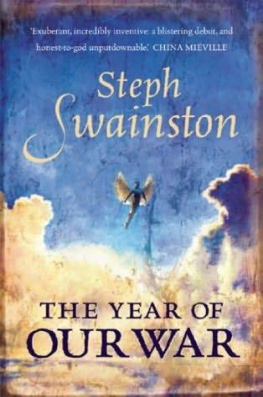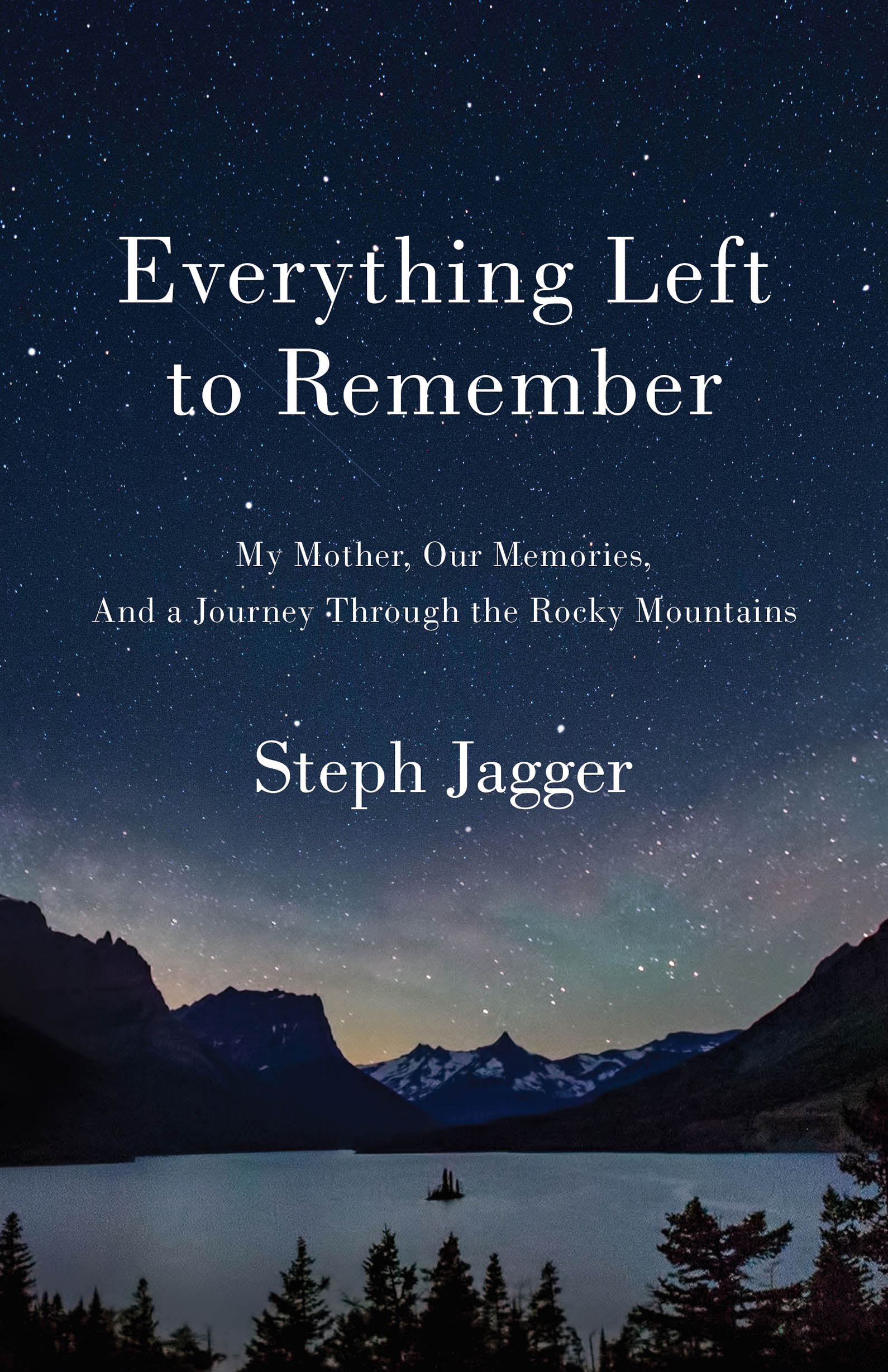Contents
Guide
Pagebreaks of the print version

The author and publisher have provided this ebook to you for your personal use only. You may not make this ebook publicly available in any way. Copyright infringement is against the law. If you believe the copy of this ebook you are reading infringes on the authors copyright, please notify the publisher at:
us.macmillanusa.com/piracy.
For my mother.
The way you revealed yourself in the midst of your disappearance has taught me more than the sun, and the moon, and the swing of the ocean between them.
Good God, how youve set us all free.
We have instructions and a map buried in our hearts when we enter this world.
JOY HARJO
My mother has a story, one shes been carrying with her since 1966, a tale she tucked firmly inside of herself. She also has Alzheimers. And from the moment she was diagnosed, I sensed those two thingsthe disease and the storywere somehow inextricable. They seemed woven together into a thick cord, and I felt if I could only untangle them, it might help set her free.
I came into this world with my mothers story written into the supercoil of my DNA. Like a dormant seed placed in deep soil, transferred somehow from her garden to mine. Every word of it was imprinted onto my biopolymer strands. Im certain of it. It ran through my blood before it was blood. It was drilled into my marrow before I had bones.
It was part of my contract, the fine print that the Universe, and my mother, and little bits of my soul haggled over before agreeing to drop me into her arms.
My mother would never utter much more than a word or two about itthe child she conceived with my father well before they were married, the subsequent adoption that took place, and the decades-long cover-up of their teenage faux pas. Nor would she discuss the emotions involvedif, when, or how they had ever arrived. Her lifelong dislike of words would never have let her; nor, eventually, would Alzheimers. So they gave the story to me. It was part of my inheritance.
Growing up, I didnt know the telling of her story would be my job. I wasnt walking around as a twelve-year-old thinking this was my raison dtreI figured that was more along the lines of wear jelly shoes and tell people what to do. (Somewhere along the way, I developed a healthy dose of self-assurance and an audacious kind of bravery, but thats beside the point.)
The realization arrived about twenty-five years later when I was walking through the woods with my mother, when she paused on the trail and told me exactly what I was to do.
It was a clear day in early November, streams of misty light were moving through the forest, and big-leaf maples were dropping red-and-yellow clues about where we were and where we might go next.
What do you think about me writing a book about us? I asked, as we turned onto my favorite section of trail. About you?
A book about me?! she said in surprise. But theres nothing terribly interesting about me.
And then she paused, mid-stride. She was thinking about something. As of late, watching her do this was not unlike watching a small child with an Imbucare Box, a slow and imprecise process of trying to fit the blue block into the hole made for the blue block, before moving on to the small red square.
Would I she said, the question forming slowly in her brain. Would I have to write any of it?
No, Mom, I said. You dont have to write a single word.
She looked over to me and I saw the small muscles in her face relax. She smiled at me, reached out, and took both of my hands in hers.
Oh, good, she said, while squeezing them. Ill walk it. You write it.
And with that she stepped forward, resuming her stride.
I thought for sure she would say more, but she didnt.
We wound our way through a grove of especially large maples, a scattering of their leaves laying here and there on the ground. I picked one up and handed it to my mom like it was a big orange balloon on a string. It didnt take long for her to start in on a game of peekaboo, using the leaf to cover her face before quickly peeking forward with a cuckoo type of sound.
Here I am! she said with a laugh.
When she did it a second time the leaf fell out of her hand and fluttered to the ground. I bent over, picked it up off the trail, and handed it back to her.
Thats what you were made for, she said, an unusual lucidity in her voice.
For what? I asked.
For picking up all the leaves Ive dropped.
Shortly after my mothers diagnosis, and well prior to this walk in the woods, my mother and I had taken a trip togethertwo weeks on the road, driving through and camping in a handful of national parks. At the time, I had a desperate sense of urgency to know more about her life, to know all of my mother. The idea of Alzheimers taking pieces of her away before I had the whole picture was unbearable to me. Especially because Id always sensed that some pieces of her had long been missing.
There was so much I didnt understand about my mother. There was a specific section of the puzzle from 1966 that felt very unknown to mewhat had happened leading up to, and after, the birth of my eldest brother. But there was also what felt like a general veil of withholding.
I didnt have a name for this. I didnt have words for what I felt was being held back. But I had a sensation, and over the years it had told me, time and time again, that some part of my mother was, and had always been, inaccessible to me, perhaps even to her.
The ache to know more of my mother had existed within me for a long time, but something about it changed when she was diagnoseda dull and muted pain was replaced with something more searing.
I wanted to know all of herwho shed been, what shed felt, the sum of all her partsand this trip together felt like my last chance, a brief moment in time where my mother had lost a bit of her filter, but still retained the shape of her mind. So I reached for her hand, and together, we walked into the wilderness.
Sometimes were given the stories of our mothers and fathers, of our ancestors before them, and the ones who came before that. Bundles of words, written or spoken aloud, that tell us where we come from and who they really were, what kind of sand and silt they were made of. Other times we have to let the stories rise up from the soil within and around us, from the places they were buried, laid to rest. We have to watch for them as they float through the airthe tiny spores of them dispersed into the atmosphere after the storms come rolling through, covering us in a fine mist, in something we can barely detect.
I didnt know how to translate a story that didnt have words. I didnt know how to pick up those leaves, how to parse them out, to differentiate between them and the air I was breathing. But she gave me the answers. For the key to unlocking it all was the language, the fluency of wordlessness she taught me on our journey together, everything that lives inside of a hush.
The deal was clear. My mother was to live it, I was to write it.
It would be an instruction manual, a guide of sorts for my mothers freedom. What I didnt know at the time was that it also held instructions for my own.
It took me eleven months to notice the tear in the fabric, and seven words for it to rip straight down the middle. Eleven months and seven words.


